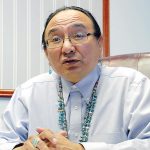
Capital Briefs | Residents tell U.S. panel of uranium mining impacts
RED WATER POND, N.M.
On April 22, Diné residents gave firsthand accounts of the health and environmental uranium mining impacts to the U.S. Nuclear Regulatory Commission members.
Commission Chairman Christopher Hanson and members Jeff Baran and David Wright were among the federal officials who made the trip.
Resident Edith Hood, a Red Water Pond Road Community Association member, spoke about being diagnosed with cancer because of uranium exposure.
She recalled that she and her family members witnessed uranium mining as a child but were never warned about the dangers and health impacts.
Hood was one of the dozens of elders who voiced their frustration and concerns with the NRC.
Friday’s discussions marked the first time the U.S. Nuclear Regulatory Commission held a community meeting in the Navajo Nation to hear from impacted families.
The Navajo Nation EPA continues to work with the federal Superfund Program to clean up 500-plus abandoned uranium mines on the Navajo Nation.
In 1979, the largest radioactive spill in U.S. history occurred at the Church Rock Mill, which released tons of uranium and radioactive waste into the nearby Puerco wash, contaminating the water and soil where families live.
The Red Water Pond Road Community Association was founded in 2006 by residents residing near the Northeast Church Rock Mines, the Tronox Quivira Mines, and the United Nuclear Corporation Mill Site.
The group opposes the transfer of uranium mine waste from the Northeast Church Rock abandoned uranium mines to the mill site, located approximately one mile from the boundary of the Navajo Nation.
President Jonathan Nez and Navajo Nation EPA Executive Director Valinda Shirley attended the meeting.
First commission hearing focuses on needs of children
LEUPP, Ariz. – On April 22, the Alyce Spotted Bear and Walter Soboleff Commission held the first Navajo Regional hearing on Native Children.
Congress established the commission in 2016 to study federal, state, local, and tribal programs and the grants and support available for Native children.
The commission was to develop recommendations to improve the health, safety, and well-being of Native children. Jesse Delmar, Division of Public Safety executive director, serves as one of the 11 commissioners.
In partnership with the Casey Family Foundation, the two-day hearing was held at Twin Arrows Navajo Casino Resort.
Criminal Investigation Director Michael Henderson said the top three crimes in the Navajo Nation are aggravated assault, sexual assault, and homicide.
Acting Chief Prosecutor Vernon Jackson reported that substance abuse among parents and caregivers is a significant factor in child abuse and neglect in the Navajo Nation.
Delegate Amber Kanazbah Crotty said, “The restoration of hózhǫ, balance, and harmony within our homes and society requires the implementation of the Są’ah Naagháí Bik’eh Hózhóón to identify problems, investigate, analyze, and strategically resolve issues.
“Our ancestors and elders used the same framework to survive and heal,” she said, “and we must now use those teachings to overcome the challenges our children face.”
First lady Phefelia Nez said, “Moving forward, our federal, state, and local partners need to understand and recognize the importance of integrating our cultural values and principles into prevention and intervention efforts.”
Nez serves on the New Mexico Missing and Murdered Indigenous Women and Relatives Task Force.
Dottie Lizer, the wife of Vice President Myron Lizer, said, “Every child should feel safe within the home and community. It can take one person to impact a child’s day, but it takes a community to impact (their lives). We must provide adequate resources, services, and opportunities to secure their future.”
Other participants included Navajo Nation Youth Advisory Council members Triston Black and Adriano Tsinigine, community youth Tyler Jensen, First Things First Navajo Nation Regional Director Memarie Tsosie, and others.
Flags at half-staff for Spec. Bia
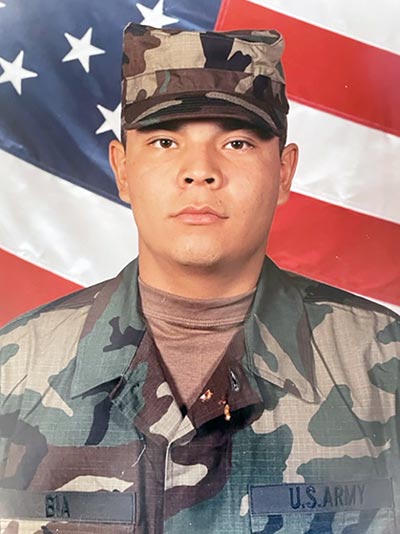
Natashike Jacob Bia
On Monday, a proclamation was signed by President Jonathan Nez calling for all flags on the Navajo Nation to be flown at half-staff Wednesday in honor and memory of U.S. Army Specialist Natashike Jacob Bia, who passed away April 19.
Bia was Houses in a Line Clan, born for Tódích’íi’nii.
He served for four years in the U.S. Army, earning the rank of specialist, including one year as a military contractor, before being honorably discharged.
He served in Operation Enduring Freedom in Afghanistan and Operation Iraqi Freedom in Iraq under the 160th Special Operations Aviation Regiment and the 278th Military Intelligence Company.
Bia served as vice commander for the Nazlini Chapter veterans’ organization upon returning to the Navajo Nation. He also worked with the Arizona Veterans Hospital as a procurement specialist and a buyer for the Navajo Area Indian Health Service.
Chinle Delegate Eugene Tso said, “Army Specialist Bia was a beloved son and father who brought so much happiness into the lives of the people he met. May all the colors across the Navajo Nation fly at half-staff to remember his bravery and service to protect our people.”
His funeral was on Wednesday in St. Michaels, and he was to be laid to rest today at the Arizona Veterans’ Memorial Cemetery at Camp Navajo in Bellemont, Ariz.
Applications wanted for business development grants
WASHINGTON – Indian Affairs announced Tuesday that applications for Native American Business Development Institute grants are available, according to a Department of Interior news release.
Proposals must be submitted via the Grants.gov website by June 27.
Funds can be used to explore business solutions by obtaining technical assistance by hiring consultants to perform feasibility studies.
Grants support informed decision-making by tribes. The assistance may also fund plans for proposed businesses or tribal businesses recovering from the impacts of the COVID-19 pandemic.
The Office of Indian Economic Development seeks to fund approximately 10 to 32 grants, ranging from $25,000 to $75,000, with applicants limited to federally recognized American Indian and Alaska Native tribes and tribal organizations.
Information: Dennis Wilson, 505-917-3235, or dennis.wilson@bia.gov

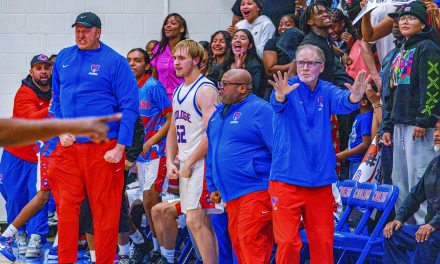
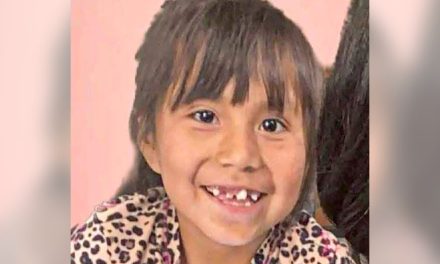

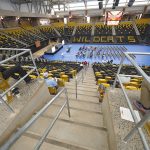


 Highway 264,
Highway 264, I-40, WB @ Winslow
I-40, WB @ Winslow